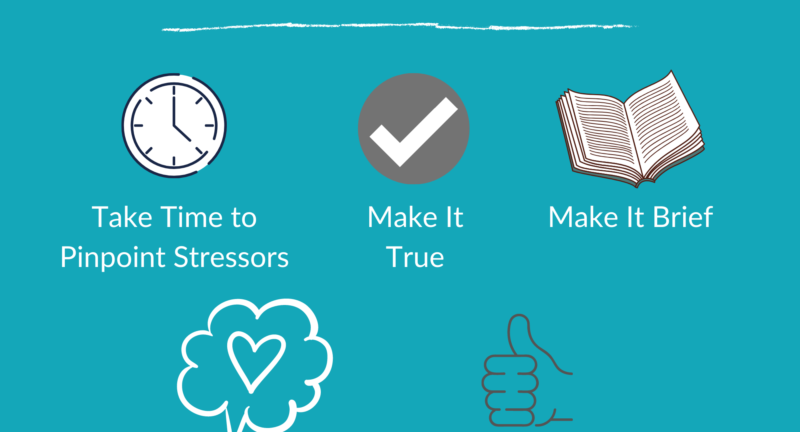
Navigating ADHD in Marriage: Practical Strategies for Couples

This is a guest post from Dr. Nick Bach.
Introduction to ADHD in Marriages
When ADHD enters a marriage, it can create a unique set of challenges that test patience, communication, and love. ADHD and marriage dynamics often involve misunderstandings and frustrations, but with practical strategies and a commitment to understanding, couples can build stronger, more resilient bonds. Approximately 20% of marriages include at least one spouse with ADHD, based on adult ADHD prevalence rates of 4-5%.
This post explores the ADHD spouse marriage challenges, offers detailed practical tips for both the non-ADHD and ADHD spouse, examines the role of marriage counseling for ADHD, and highlights how medication can support marriage with an ADHD spouse.
I’m Dr. Nick Bach, and drawing from my experience as a marriage counselor in Louisville, I’ll share insights from couples who’ve navigated these dynamics successfully.
Common Challenges in ADHD Marriages
ADHD and relationship dynamics can strain even the most loving partnerships. The neurological differences of ADHD—inattention, impulsivity, and emotional dysregulation—manifest in ways that disrupt marital harmony. Here are some common ADHD spouse marriage challenges:
- Communication breakdowns: The ADHD spouse may struggle to stay focused during conversations, interrupting or forgetting key details, leaving the non-ADHD spouse feeling unheard.
- Uneven task distribution: The non-ADHD spouse often takes on more household or financial responsibilities, leading to resentment.
- Emotional volatility: Impulsive reactions or mood swings can escalate conflicts, making arguments feel intense and unresolved.
- Time management struggles: Chronic lateness or missed deadlines by the ADHD spouse can frustrate the non-ADHD partner, who may feel they’re always “waiting.”
- Inconsistent affection: The ADHD spouse’s distractibility may make the non-ADHD spouse feel neglected or unloved.
- Hyperfocus mismatches: The ADHD spouse may hyperfocus on hobbies or work, sidelining the relationship, which can feel like rejection.
- Financial strain: Impulsive spending or forgetting to pay bills can create tension, especially if the non-ADHD spouse manages the fallout.
These challenges can create a cycle of frustration, but Proverbs 15:1 reminds us,
“A gentle answer turns away wrath, but a harsh word stirs up anger.” Approaching these issues with patience is key to managing ADHD in marriage.
For example, I worked with Sarah and Michael, a couple struggling with Michael’s ADHD (Names have been changed to protect confidentiality.) Michael’s forgetfulness—missing bill payments or forgetting plans—left Sarah feeling like the “manager” of their marriage. Through practical strategies, they learned to share responsibilities more equitably, easing Sarah’s burden and helping Michael feel supported rather than criticized.
Practical Tips for the Non-ADHD Spouse
Coping with ADHD in a relationship requires empathy and intentional strategies for the non-ADHD spouse. Here are detailed tips to navigate ADHD spouse marriage challenges:
- Reframe ADHD behaviors: Recognize that forgetfulness or impulsivity stems from neurology, not a lack of care. Reflect on 1 Corinthians 13:4-5, which calls us to love patiently.
- Use clear, concise communication: During communication in an ADHD marriage, keep conversations focused. For example, say, “Can we discuss dinner plans now?” instead of open-ended questions.
- Create shared systems: Use tools like a shared Google Calendar or a whiteboard for tasks. Sarah found that a shared app for chores helped Michael stay on track, reducing her stress.
- Set boundaries lovingly: If the ADHD spouse’s impulsivity leads to overspending, agree on a budget together. Discuss calmly, emphasizing teamwork.
- Prioritize self-care: Join a support group or practice hobbies to avoid burnout. In Louisville, community resources can connect you with others facing similar challenges.
- Celebrate small wins: Acknowledge when the ADHD spouse completes a task, fostering positivity. A simple “Thank you for handling that” goes a long way.
- Seek education: Read books like The ADHD Effect on Marriage by Melissa Orlov to understand ADHD and relationship dynamics better.
These steps help the non-ADHD spouse feel empowered, reducing resentment and fostering mutual respect.
Practical Tips for the ADHD Spouse
The ADHD spouse can also take proactive steps to support their partner and strengthen the marriage with an ADHD spouse. Here are actionable strategies:
- Leverage organizational tools: Use apps like Todoist or set phone reminders for tasks like paying bills or date nights. Michael adopted a reminder system, which helped him follow through consistently.
- Practice active listening: During communication in an ADHD marriage, maintain eye contact and paraphrase your spouse’s words to show engagement (e.g., “So you’re saying you need help with…”).
- Use Cognitive Behavioral Therapy (CBT) techniques: Work with a therapist to develop skills like managing impulsivity or improving focus, which can reduce conflicts and enhance reliability.
- Pause before reacting: If emotions run high, take a moment to breathe before responding. Philippians 4:6 encourages, “Do not be anxious about anything, but in every situation, by prayer and petition, present your requests to God.”
- Break tasks into steps: Large tasks like cleaning can overwhelm. Divide them into smaller steps (e.g., “Tidy one room today”) to stay focused.
- Express gratitude: Regularly thank your spouse for their patience or support, building emotional connection. For example, “I really appreciate you picking up the slack yesterday.”
- Work on self-awareness: Track ADHD symptoms (e.g., impulsivity) using a journal to identify triggers and discuss them with your spouse.
- Seek accountability: Share goals with your spouse or a therapist to stay on track with responsibilities.
These efforts show commitment to coping with ADHD in a relationship, aligning with the biblical call to “love your neighbor as yourself” (Mark 12:31).
Another couple, Emily and David, faced tension over Emily’s ADHD-driven impulsive purchases (Names have been changed to protect confidentiality). By adopting a budgeting app, practicing mindfulness, and using CBT techniques, Emily reduced financial strain, while David learned to communicate concerns calmly, strengthening their bond.
The Role of Marriage Counseling in ADHD Marriages

Marriage counseling for ADHD is a transformative tool for neurodiverse couples, addressing the unique challenges posed by ADHD in a way that general counseling may not. It provides a structured environment to tackle ADHD and relationship dynamics, helping couples like Sarah and Michael or Emily and David rebuild trust and connection. A trained marriage counselor will use evidence-based approaches tailored to the specific needs of ADHD marriages, fostering teamwork and mutual understanding.
Counseling can help with a range of issues, including:
- Improving communication: ADHD often disrupts communication in an ADHD marriage, with the ADHD spouse interrupting or zoning out. Counselors teach techniques like active listening and structured dialogue to ensure both partners feel heard.
- Balancing responsibilities: The non-ADHD spouse may feel overburdened by tasks. Counseling helps couples create equitable systems for household and financial duties, reducing resentment.
- Managing emotional volatility: The ADHD spouse’s impulsivity can lead to heated arguments. Therapists guide couples in de-escalation strategies and emotional regulation, fostering calmer interactions.
- Rebuilding intimacy: ADHD’s distractibility can erode emotional and physical closeness. Counseling explores ways to prioritize connection, such as scheduled date nights or intentional gestures of affection.
- Addressing hyperfocus mismatches: When the ADHD spouse hyperfocuses on work or hobbies, the non-ADHD spouse may feel neglected. Counselors help couples set boundaries and carve out quality time.
- Navigating financial stress: Impulsive spending, a common ADHD trait, can strain budgets. Counseling introduces tools like joint budgeting or financial accountability plans to align priorities.
- Strengthening partnership: Counseling shifts the dynamic from one spouse feeling like a “parent” to a collaborative team, emphasizing shared goals and mutual support.
I use the Gottman Method for couples counseling, which is particularly effective for couples with an ADHD spouse. Backed by over 40 years of research, the Gottman Method focuses on building friendship, managing conflict, and creating shared meaning. For the ADHD spouse, it offers structured tools to improve attentiveness and emotional regulation, such as “softened startups” to initiate discussions calmly or “repair attempts” to de-escalate conflicts.
For example, Michael learned to use Gottman’s “I feel” statements (e.g., “I feel overwhelmed when tasks pile up”) to express needs without triggering defensiveness, helping Sarah respond with empathy. The method’s emphasis on small, consistent actions—like daily appreciation—helps the ADHD spouse stay engaged despite distractibility, fostering a stronger bond.
As a couples counselor in Middletown, I also use other evidence-based strategies, such as:
- Couples communication training: Teaches both partners to express needs clearly, reducing misunderstandings. For instance, Emily and David practiced turn-taking in sessions, which improved their ability to discuss finances without arguments.
- Strength-based strategies: Highlights the ADHD spouse’s strengths, like creativity or enthusiasm, to enhance the relationship. Counselors might encourage the ADHD spouse to plan a fun activity, leveraging their spontaneity to boost connection.
Counseling provides a safe space to integrate faith, leaning on Psalm 46:1, “God is our refuge and strength, an ever-present help in trouble.” By addressing these challenges, managing ADHD in marriage through counseling equips couples with practical tools and emotional resilience to thrive. Whether navigating communication breakdowns or rebuilding intimacy, counseling helps couples move from frustration to partnership, creating a more balanced and fulfilling marriage with an ADHD spouse.
The Role of Medication in Supporting ADHD Marriages
Medication can be a valuable tool in ADHD and marriage by addressing symptoms that strain relationships. Stimulants (e.g., Adderall) or non-stimulants (e.g., Strattera) can improve focus, reduce impulsivity, and stabilize emotions. For example, a medicated ADHD spouse may better remember tasks or engage in conversations, easing the non-ADHD spouse’s load.
Emily found that medication helped her stay present during discussions with David, reducing arguments. However, medication works best alongside therapy and lifestyle changes.
At Next Step 4 ADHD, providers specialize in personalized ADHD treatment plans, guiding couples to find the right medication and support strategies for their unique needs. Their expertise ensures that treatment aligns with relationship goals, fostering harmony. To schedule an appointment in Louisville or via telehealth, visit the Next Step 4 ADHD contact page. Couples should consult a psychiatrist to explore options, ensuring the plan supports both the individual and the marriage with an ADHD spouse.
Building a Stronger Marriage with ADHD
Navigating ADHD and marriage requires mutual effort, patience, and practical tools. Both spouses must commit to understanding ADHD’s impact and celebrating progress, like a successful conversation or a shared task. Coping with ADHD in a relationship means embracing small victories and approaching challenges as a team.
As Romans 15:13 encourages, “May the God of hope fill you with all joy and peace as you trust in him.”
Conclusion
ADHD and marriage can be challenging, but with practical strategies, couples can turn obstacles into opportunities for growth. By addressing ADHD spouse marriage challenges, using tools like shared systems, active listening, and CBT, and leveraging marriage counseling for ADHD, partners can build stronger bonds. Medication, supported by psychiatrists in Louisville at Next Step 4 ADHD, can also improve communication in an ADHD marriage, fostering greater connection. Couples like Sarah and Michael, and Emily and David, show that with effort and understanding, neurodiverse marriages can thrive.
About the Author

Dr. Nick Bach, a licensed clinical psychologist and marriage counselor in Louisville, Kentucky, specializes in helping couples at Grace Psychological Services strengthen their bonds through evidence-based therapy rooted in Christian values.
Related Posts
Using Mantras to Reduce Stress
Stress has become a way of life for many of us these days, and the reality is...
6 Ways to Motivate Your Child
Whether you're trying to encourage your child to complete homework (or...


